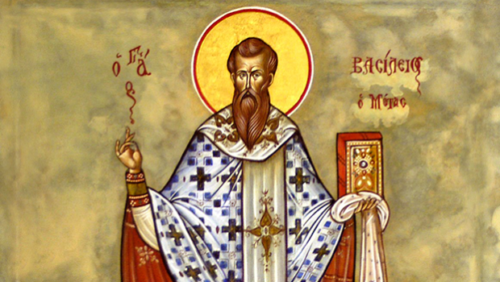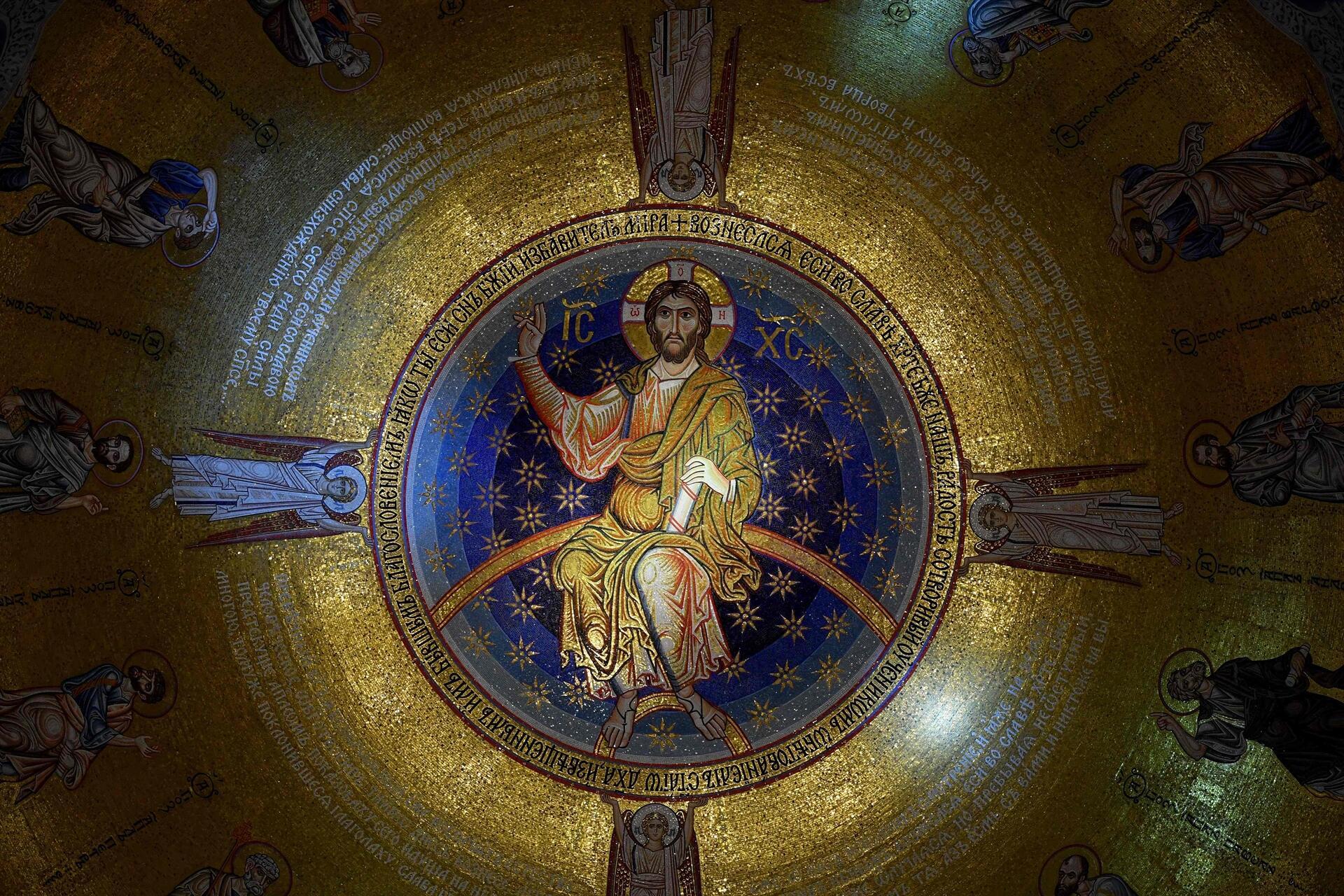Tribute: We all have our heroes – June 29th, 2019
Heroes can be warriors and visionaries, statesmen and soldiers, artists and authors, the men and women of our age, or some soul from the distant past. Our heroes can be men of vision, men of courage, men and women of relentless resolve, and also of endless faith. These are those to whom we look up to, look after, and hope to emulate in some way in our own lives, whether by word or deed, accomplishment, virtue, or any number of qualities we admire about our hero. So it is with my hero. My hero wears a cape, but he was not Superman, but he was a great man.
Father Thomas Hopko of blessed memory had this to say about my hero, that he “was a man of numerous gifts and talents. He is remembered as a great theologian, a bulwark against heresies, a pastor, a teacher, a philanthropist, a rhetorician, an ascetic, and generally one of the greatest saints to ever grace the Body of Christ.” Father Thomas is speaking of none other than Saint Basil the Great; the ArchBishop of Caesarea; one of the three great Cappadocian Fathers; one of the three great hierarchs of the Christian faith standing alongside Saint John Chrysostom and Saint Gregory the Theologian. Saint Basil is the man for whom I was named in honor of upon my own ordination, and is a name I carry with great humility and honor.
He was an academic of the first order.
Saint Basil Received his higher education in Athens, the center of classical enlightenment. After five years or so, he had mastered every available discipline within his grasp. “He studied everything thoroughly, more than others are wont to study a single subject. He studied each science in its very totality, as though he would study nothing else.” Philosophy, philology, oration and rhetoric, law, nature, astronomy, mathematics, as well as medicine. As one man said, “he was a ship fully laden with learning, to the extent permitted by human nature.”
His contributions to the theological thought and mind of the Church are tremendous. His book “On the Holy Spirit” formed the very foundation of our trinitarian Theology in the east, which Saint Ambrose later used to form the same in the West. He wrote another famous work called the Hexameron on the six days of creation. Nearly 400 letters are attributed to him, from which many elements of Canon law were developed. He also composed a liturgy, still in use to this day, and now named after him: The Liturgy of Saint Basil.
He was a matchless philanthropist.
Almost immediately after being enthroned as the Bishop of Caesarea, he commissioned a colossal hospital, which was once considered a wonder of the world. He also started hospice care for the sick, a homeless shelter, and began to run what was effectively a hunger and relief center, often working at feeding the poor himself. He put into action words he often preached from the ambo of the Church:
The bread in your cupboard belongs to the hungry man; the coat hanging in your closet belongs to the man who needs it; the shoes rotting in your closet belongs to the man who has no shoes; the money which you put into the bank belongs to the poor. You do wrong to everyone you could help but fail to help. (Saint Basil)
“How can I make you realize the misery of the poor? How can I make you understand that your wealth comes from their weeping?” (Saint Basil)
He was, most of all, a staunch teacher and defender of the Christian faith.
He lived in between the period of the first Ecumenical Council of 325 and the second in 381. He fought voraciously against the Arian heresy that was condemned in both councils. It was a dogmatic dispute that inspired much of his writing, but it was a heresy that had seeped into government circles. Thus, he was threatened with exile by the Emperor, and Saint Basil’s response has survived the ages:
“If you take away my possessions, you will not enrich yourself, nor will you make me a pauper. You have no need of my old worn-out clothing, nor of my few books, of which the entirety of my wealth is comprised. Exile means nothing to me, since I am bound to no particular place. This place in which I now dwell is not mine, and any place you send me shall be mine. Better to say: every place is God’s. Where would I be neither a stranger and sojourner (Ps. 38/39:13)? Who can torture me? I am so weak, that the very first blow would render me insensible. Death would be a kindness to me, for it will bring me all the sooner to God, for Whom I live and labor, and to Whom I hasten.”
The official was stunned by his answer. “No one has ever spoken so audaciously to me,” he said.
“Perhaps,” the saint Basil remarked, “ that is because you’ve never spoken to a bishop before. In all else we are meek, the most humble of all. But when it concerns God, and people rise up against Him, then we, counting everything else as naught, look to Him alone. Then fire, sword, wild beasts and iron rods that rend the body, serve to fill us with joy, rather than fear.”
Basil the Great again showed firmness before the emperor and his retinue and made such a strong impression on Valens that the emperor dared not give in to the Arians demanding Basil’s exile.
Saint Basil was a bulwark of the Christian faith. He existed as a very pillar of the Church. He spoke truth to power. He uplifted the poor, meeting their many needs. He healed the sick, both of body and soul. He edified and educated many on the Christian faith. He is a man of great legacy. Much of his work still exists today, and still echoes through the very sacramental life of the Christian faith.
He is my hero. He is my inspiration. He was truly one of the greatest living icons of Jesus Christ our Lord, and I follow in his footsteps, marching ever Godward, hoping that I should bring honor to his name. I look forward to the day I should hear those beautiful words, well done my good and faithful servant, that Saint Basil will be nearby, and that I might embrace the man whose name I now bear.




